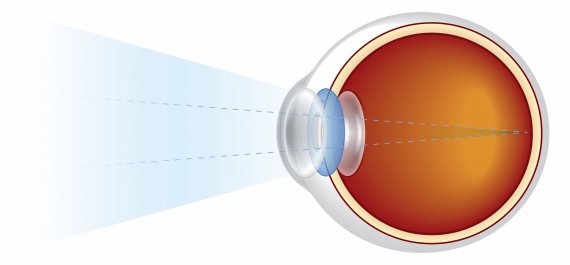Cataract Surgery Complications
Complications after cataract surgery are rare, and most can be treated successfully. You may have some discomfort around your eye, a mild ache or scratchy feeling for the first 24 hours or so, and you may experience fuzzy vision at first, but these conditions will improve as your eye heals. Most patients enjoy excellent results from surgery and are pleased with the improvement in their vision.
 If you think you may have a cataract, E. Trevor Elmquist, DO, a leading cataract specialist in Cape Coral, Fort Myers and greater Lee County, Florida, can provide safe and effective treatment that will improve your vision for years to come.
If you think you may have a cataract, E. Trevor Elmquist, DO, a leading cataract specialist in Cape Coral, Fort Myers and greater Lee County, Florida, can provide safe and effective treatment that will improve your vision for years to come.
Dr. Elmquist is board certified by the American Board of Ophthalmology and has been selected as one of America’s Top Doctors in ophthalmology by Castle Connolly Medical Ltd. For more than 20 years, he has provided exceptional eye care to the residents of Southwest Florida.
Cataract Surgery Risks and Complications
Cataract surgery is one of the most commonly performed and successful surgeries in the world, and is generally a safe procedure. However, as with any type of surgery, a good result cannot be guaranteed and occasional complications can occur.
The risk of complications may be greater if you have another eye disease or suffer from a serious medical condition. For example, cataract surgery may fail to improve vision as a result of underlying eye damage that has been caused by other eye conditions, such as macular degeneration or glaucoma. Or, if diabetic, you may be more prone to swelling.
Possible complications from cataract surgery include:
- Inflammation
- Infection
- Bleeding in the front of the eye
- Swelling of the retina or cornea
- Dislocation of the intraocular lens
- Retinal detachment
- Glaucoma
- Secondary cataract
Most surgical procedures create some amount of inflammation. A little inflammation can help protect the eye from infection and start the healing process.
Too much inflammation is a potential complication of cataract surgery, and it can damage the eye. If the inflammation reaches the back of the eye, it can cause retinal swelling or edema. Dr. Trevor Elmquist may prescribe eye drops before or after cataract surgery to decrease the chances of this complication.
Contracting an infection inside the eye is potentially serious. The chances of this happening are low, but you can expect Dr. Elmquist to prescribe antibiotics to protect the eye from infection after cataract surgery.
Another possible complication is a malpositioned or dislocated intraocular lens (IOL). Dr. Elmquist makes every attempt to ensure that the IOL is positioned correctly within the “capsular bag” which contained the cloudy lens. But the capsular bag is very thin — about the thickness of a single red blood cell — and may rupture or break. With prompt action, the IOL should be able to be repositioned in a second procedure.
It’s also possible for retinal detachment to occur if the retina develops a hole or tear and detaches from the wall of the eye. This is also an uncommon complication of cataract surgery, but can result in permanent vision loss if not properly treated.
According to the American Society of Cataract and Refractive Surgery (ASCRS), three million Americans undergo cataract surgery each year, with an overall success rate of 98 percent or higher.
An experienced surgeon and cataract specialist, such as Dr. Trevor Elmquist, will be able to limit the possible complications following cataract surgery. Get in touch with Elmquist Eye Group at (239) 936-2020 to talk with Dr. Elmquist. He would be happy to answer any questions you may have about cataract surgery and help restore your clear vision.
